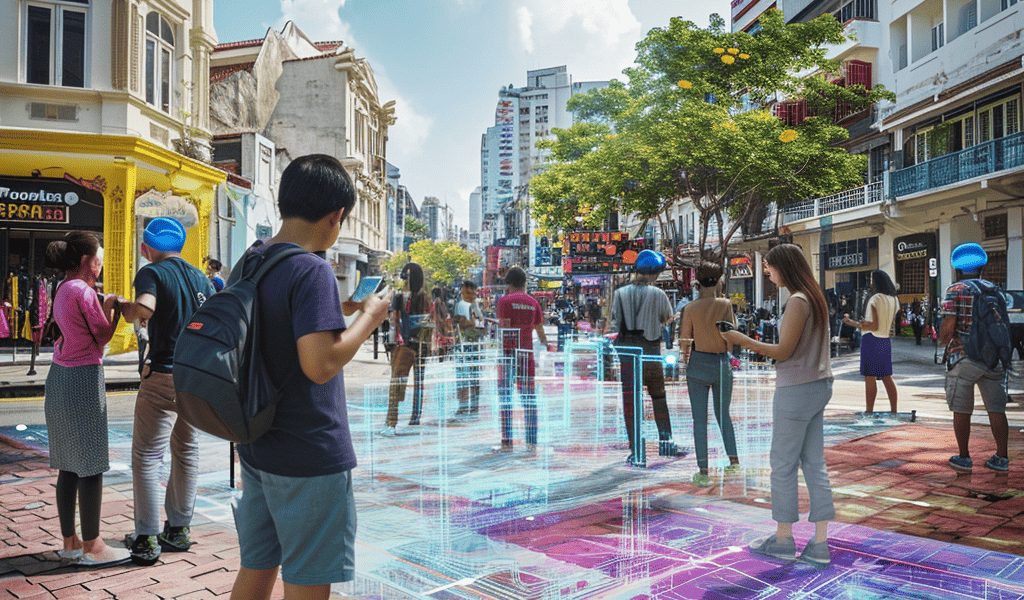US cities are facing a new wave of challenges as augmented reality (AR) technologies are increasingly being used to visualize urban development and democratize access to information. The use of AR in cities has the potential to revolutionize the way people interact with their surroundings, but experts are warning about the regulatory and privacy challenges that come with it.
One example of AR in action is the redevelopment project of the Franklin D Reeves Center in Washington. By scanning a QR code on the pavement and using their smartphones, residents were able to see a 3D visualization of the future building, complete with a sleek glass-fronted space that would house the national headquarters of the NAACP, a dance theatre, restaurant, and more. This technology allows people to engage with proposed developments in a tangible way, providing valuable insight and understanding of future urban landscapes.
However, the accessibility and democratization of information through AR also raise concerns. While the technology has the potential to empower communities and provide greater transparency in urban planning, there are fears that it may primarily benefit older, more affluent, and predominantly white residents, further exacerbating existing inequalities.
inCitu, a New York-based company, has developed an app that aims to address these challenges by democratizing access to urban development information. The app provides a platform for collaboration and aims to make existing information more accessible to a wider audience, breaking down barriers to participation in urban planning processes.
Despite the potential benefits of AR in urban development, experts are cautioning that regulatory frameworks and privacy protections are not keeping pace with the rapid adoption of these technologies. As AR becomes increasingly integrated into city landscapes, there is a pressing need for clear guidelines to ensure the responsible and ethical use of this technology.
The use of AR in cities is undoubtedly transforming the way people envision and engage with urban spaces. However, as the technology continues to evolve, it is essential to address the potential challenges and risks associated with its implementation to create inclusive and equitable urban environments for all residents.





